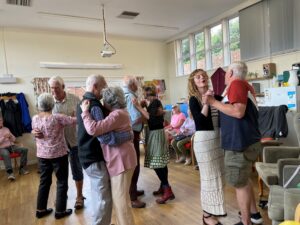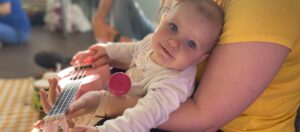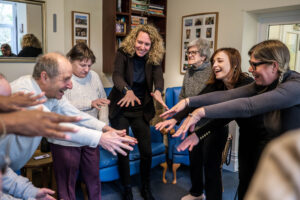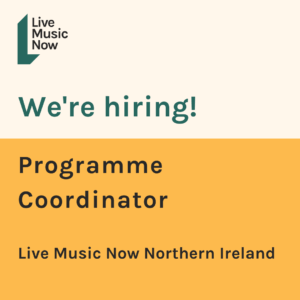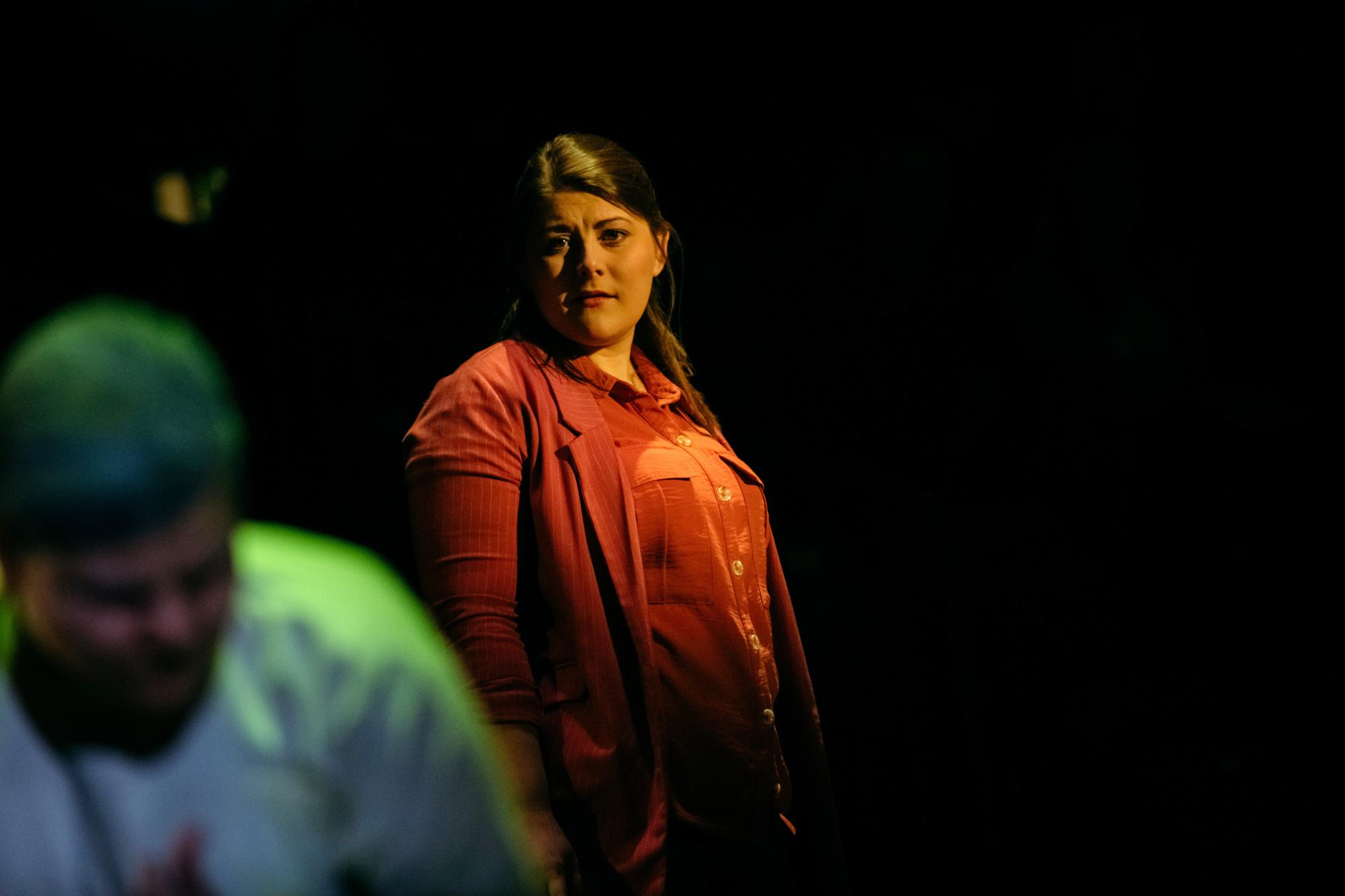
The first time that I felt the immediate impact of the pandemic within my own work was on 2 March 2020. I was singing in an opera at the Guildhall School of Music & Drama (GSMD) and we were due to perform our closing night show (also marking the end of my studies at the school). We received an email just hours before our call to stage, informing us that the show had been cancelled due to a case of coronavirus in the school. I remember so vividly the disbelief that we all felt; we ended up heading to the pub to drown our sorrows and console each other at the loss of our final show, adamantly believing that this was surely over-cautious and that we would be back in the building within a week. Little did we know how all of our lives would be impacted over the 12 months that followed.
My husband and I were dependent on my summer income, which had suddenly all but disappeared.
I was due to be leaving my formal studies at GSMD to head to Garsington Opera for the summer. This was to be my first professional opera contract and I was so excited to get out into the big wide world and make what would feel like an official start to my career. Sadly, along with the majority of my colleagues, my entire summer of work was cancelled by the end of March. Garsington were hugely supportive of all of their young artists and honoured our contracts by paying us a generous part of our fee, as well as putting a virtual young artist programme online for us. GSMD also welcomed back those of us who had planned to head off into work for the summer, including us in their online summer term and keeping us busy with role studies. Whilst this was set to be a time of valuable, focused learning and professional development, for which I was extremely grateful, it unfortunately couldn’t alleviate financial worries. My husband and I had budgeted around and were dependent on my summer income, which had suddenly all but disappeared. As was the case for nearly every musician I know, it was suddenly a hugely worrying and unpredictable time that no one could have foreseen. I started looking into alternative work and was fortunate that an unexpected opportunity soon came my way through a friend.
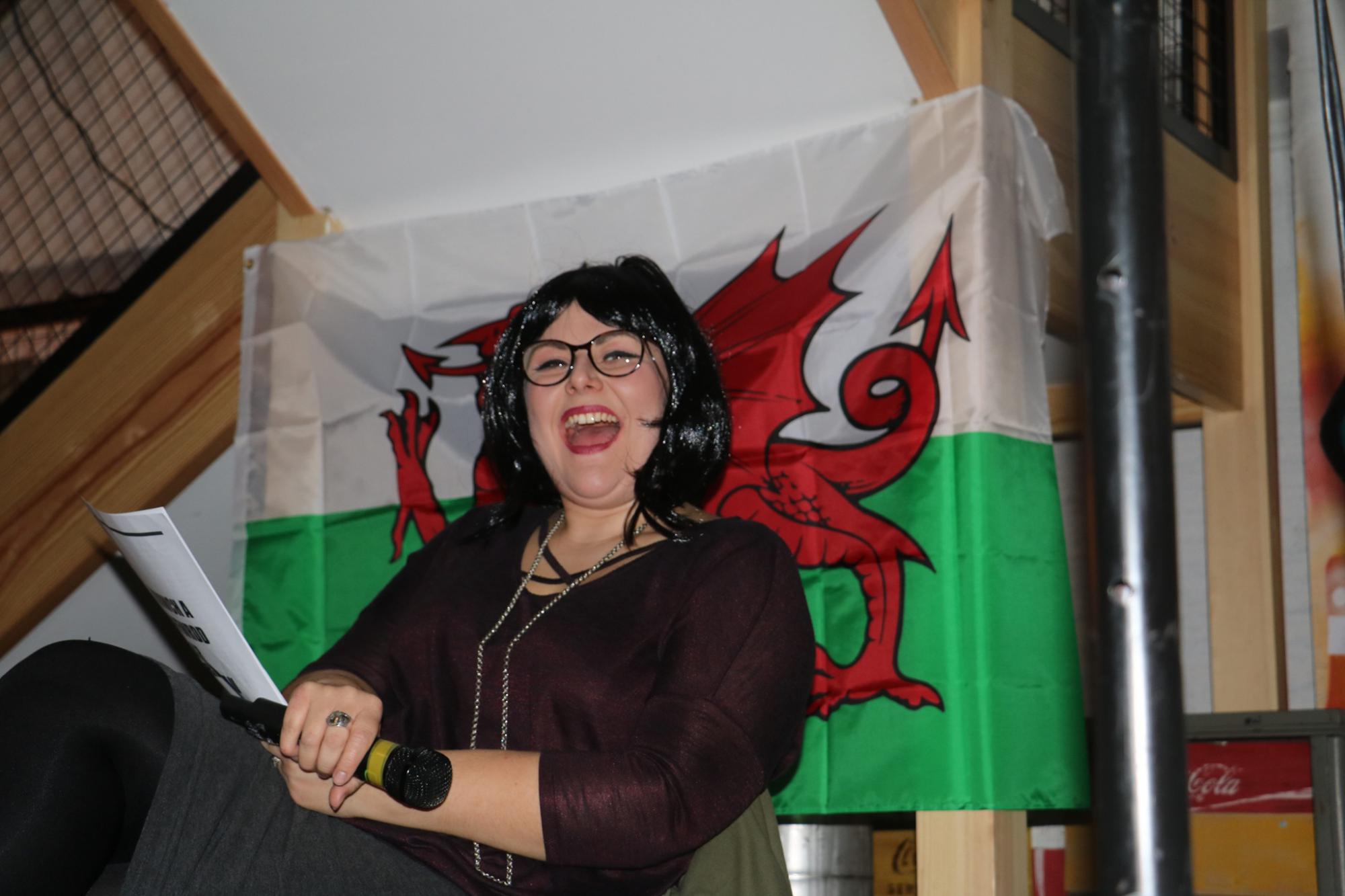
Pre-pandemic Gavin & Stacey quiz night
Prior to the pandemic, I had been doing some work for an old school pal, hosting Gavin & Stacey themed pub quizzes and raising money for the charity Child.org. I’ve been a Gavin & Stacey superfan since I was a teenager and, having a bit of a knack for accents and impressions, was drafted in to host some quizzes dressed as my favourite character/Gavin & Stacey icon, Nessa. We’d decorate the pub, have people turn up who were even more Gavin & Stacey-obsessed than we were, and raise loads of cash for the charity – happy days! When the first lockdown was put into place, this same friend gave me a call and asked me if I would be interested in hosting the Gavin & Stacey quizzes online. I jumped at the chance and quickly ordered myself a Nessa wig and a Welsh flag for my virtual background. This was right at the start of the online quiz trend that would soon take over, so it was all a bit trial and error initially. I was incredibly nervous at the prospect of hosting the quiz whilst dealing with all of the technology and potential room for error (alas, I am not technologically blessed in general…) but I needn’t have been worried, as our first quiz turned out to be an unprecedented success. We had around 300 households tuning in to play online and raised approximately 5 times what we would usually have been able to at a live quiz in the pub. We even had a few celebrities tune in, with a surprise guest appearance from one of the Gavin & Stacey actors (Robert Wilfort who plays Jason West), as well as Ellie Goulding, who we realised was playing along after she’d made a generous donation and I saw my face on her Instagram story (I’ve never felt so famous!).
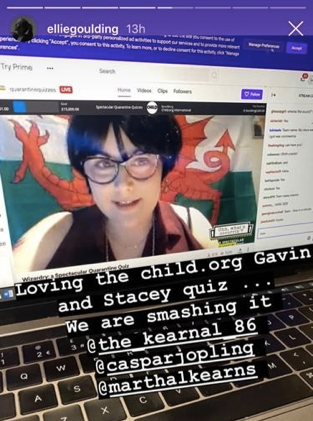
In total, I hosted eight Gavin & Stacey-themed events throughout the first lockdown, as well as a couple of other specialised quizzes (Mean Girls was also a highlight!). We raised a huge sum for the charity and it provided me with a little extra income for a while, which was a big help. It was a surreal but hilarious time in my lockdown experience, made even more bizarre by ending up in the national press, when a reporter from The Times got in touch with me via the charity and ran an article on our quizzes! Whilst running the quizzes for Child.org, there was a sense that the trend of online quizzing had a limited life-span and we made the 8th Gavin & Stacey Quiz our final hurrah. It felt like the end of an era and I was sad to bid farewell to our little quiz community that we had built throughout the first lockdown.
I was once again faced with fears of unemployment…
Although I was keeping busy with recording online singing content, role studies and zoom singing lessons/coachings, I was once again faced with fears of unemployment, and started to search for other jobs to tide me over. Fortunately, a timely email came through from Garsington Opera, who sent a link to an article listing companies and organisations who were taking on new employees in light of the pandemic. One of these companies was Home Instead Senior Care, a domiciliary home-care company recruiting new carers to provide 1-1 care, assisting elderly people to live independently in their own homes. The advert stated that no previous experience working within the care sector was needed, but I felt my work singing in care homes with Live Music Now could position me well, and that doing something completely different could might be quite enlightening and rewarding. I sent in an application and just three weeks later, in April 2020, I was trained up and sent to meet my first client.
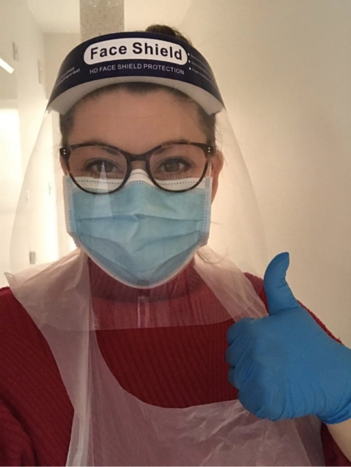
As a new carer starting out in the midst of a global pandemic, I was quite daunted by the sudden overwhelming responsibility.
As a new carer starting out in the midst of a global pandemic, I was quite daunted by the sudden overwhelming responsibility. All of my training, which would usually be carried out in person, had to be done online due to lockdown measures. I initially shadowed an experienced carer on a couple of calls but soon it was time for me to go it alone and put my training into action. I realised you soon get to know your clients and their needs really well purely by spending time with them. I had been so worried about doing things wrong and making mistakes, but Home Instead were hugely supportive and made it clear that if I ever had any doubts about anything I was doing, they were on the end of the phone and there for support. Learning from other experienced carers in those first couple of weeks was invaluable and before long I realised that like with most things, communication was key and if I ever needed support, all I had to do was ask. The most important thing was that my clients were getting help and support and their needs and voices were being heard.
Dementia is not a ‘one-size-fits-all’ entity, and each and every one of my clients are able to communicate their own needs, wishes, histories and interests, undefined by their diagnosis.
The tasks that I undertake within a working day as a carer vary greatly and are entirely dependent on the needs of the client that I’m working with. I could be doing anything from going into someone’s home first thing in the morning to assist them with getting ready for the day, to offering some companionship and a cup of tea. So many of these tasks are simply practical skills that require some common sense and good communication. When starting out, I felt nervous about my ability to provide care for those clients living with dementia, and was worried that I wouldn’t make them feel heard and understood, particularly from behind layers of PPE. As I started to meet each of my new clients and begin our care journey together, I realised that I needn’t have worried. Dementia is not a ‘one-size-fits-all’ entity, and each and every one of my clients are able to communicate their own needs, wishes, histories and interests, undefined by their diagnosis. The only difference is that communicating these thoughts and feelings sometimes has to be approached in a different way. Verbal communication isn’t always the best way to understand a client’s feelings; words can become jumbled and vocabulary has a sneaky habit of losing its way just as they’re trying to speak. It’s in those moments that frustration can set in, or worse still they retreat, defeated by a lack of confidence in their ability to make themselves heard, and so you have to find other ways to communicate. In the early days of my care journey it was these moments that I found the hardest, wanting desperately to know what I could do to help each of my wonderful and unique clients feel understood and not alone.
I have a couple of clients for whom music was once a big part of their lives…
In these moments I found it useful to change tack and focus on something different, something that was and continues to be a comfort zone for each person. I have a couple of clients for whom music was once a big part of their lives, whether that was enjoying playing an instrument or going to dances with friends… One lady that I see regularly spent most of her adult life singing in a choir. This client in particular loves to talk about her time spent with her choir and is enormously proud that she only retired from her singing days at the grand age of 90! From when we first met, we bonded over talking about our mutual love of singing and it’s a topic that we find ourselves returning to frequently during our time together. I remember one weekend, I visited this lady and saw on arrival that she wasn’t her usual self; she was frustrated, upset and unable to tell me why. I went into the kitchen to make her a cup of tea and started singing whilst carrying out my tasks, just an aria that I had been learning which had a soothing and gentle melody. I heard a voice from the living room call out “oh I like that!”. I returned to the living room, cup of tea in hand, and this lady’s mood had changed entirely. We chatted about her singing days and the pieces she loved to sing the most. We connected in a way that wasn’t possible when I’d first arrived to see her. From this day on, if I could see she was having a difficult day, I’d hum a little tune whilst making her lunch, or have a full out sing whilst running the hoover around. And each time it has helped us to connect on a level that words don’t always allow. She routinely responds with “oh I like that!” and is consoled by the familiarity of a song or simply by taking the focus and pressure away from having to talk – we can fill our time together with music instead.
I had one gentleman who insisted I sing an entire Puccini aria whilst hanging out his washing!
Other clients have enjoyed this too. I had one gentleman who insisted I sing an entire Puccini aria whilst hanging out his washing! I once gave a mini recital for a couple I visit whilst working my way through their pile of ironing. Of course, it’s not to everyone’s taste and I certainly don’t spend my entire time forcing my beloved opera tunes onto my clients when all they want is a bit of peace and quiet. But just occasionally, when making a real and genuine connection with someone I’m providing care for becomes a little trickier, music helps us to bridge the gap and enjoy something together that doesn’t require words or instruction.
…stepping outside of my comfort zone, particularly in caring for my elderly clients, has had a significant impact on my work as an artist.
I’ve been incredibly lucky to have some wonderful musical opportunities throughout the last year, either performing live to an audience between lockdowns, or also performing online via live-stream. This has of course remained the primary focus of my work, but I can’t deny that stepping outside of my comfort zone, particularly in caring for my elderly clients, has had a significant impact on my work as an artist. I felt this keenly in a recent recital that I was able to give as a part of the Oxford Lieder ‘Winter into Spring’ online festival.
.png)
My duo partner (pianist, Krystal Tunnicliffe) and I put together a programme which included some Finzi settings of Thomas Hardy poems. Our choice of these songs was directly inspired by the relationships I’ve had the opportunity to build and witness during my work with Home Instead. One song in particular, ‘In Years Defaced’, tells a story of a couple who, despite fears of the world around them and losing touch with their physical surroundings, remain “lit by a living love the wilted world knew nothing of”. I couldn’t help but associate this with some of the elderly couples I have cared for over the past year and the unwavering love they share and hold for each other in spite of the difficult days that come with living with dementia.
Working as a carer has undoubtedly given me invaluable life experience which I hope will in turn continue to have a profound impact upon my creative output. I’m now hugely excited to return to my work with Live Music Now with new found experience and knowledge that I hope I can apply to my own music-making within care home settings. I really hope to make music and dementia more of a focus in my own work going forwards and I’m excited to see what I can now bring to my work with Live Music Now having gained this experience within the care sector.
One year on since the start of the pandemic and our theatres closed in the UK, I’m lucky to be preparing a role and am currently looking forward to working with Opera Holland Park this summer. All being well, I’ll be singing the role of the Countess in their young artist production of the Marriage of Figaro; an opportunity I’m enormously grateful for, even more so in light of the past year. I’m also excited to be joining Waterperry Opera Festival for a staged song-cycle performance of Lili Boulanger’s ‘Clairières dans le ciel’. This will be performed in an open-air setting which will hopefully make audiences feel safe whilst also bringing a whole extra sensory quality to the performances, combining this beautiful music and nature-inspired text with the scents and buzz of the Waterperry gardens.
I am tentatively looking forward to a couple of international recitals in Heidelberg (Germany) and Zeist (The Netherlands)… Both will be Covid-dependent, particularly with rules around isolating before/after travel, but I’m grateful to have the work in my diary nonetheless and feel lucky to have projects like these to keep me focused and work towards. I’m equally looking forward to a postponed LMN school residency that has been rescheduled several times due to Covid. Hopefully this will go ahead in June and it will be such a joy to finally get to work with the students!
It’s been a surreal and challenging year for every musician I know, but I am grateful that I’ve been able to spend this time trying new things and forming new bonds with people I’d never have otherwise met, and I am hopeful that I’ll go forward a better artist for having had these experiences.
